
Munster: The Green Heart of Westphalia
Munster, a charming city in the heart of Germany's Westphalia region, is a must-visit for any traveler. Known for its vibrant student population and rich historical background, Munster offers a unique blend of old-world charm and modern vitality. The city is famous for its beautiful landscapes, with numerous parks and gardens that make it one of the greenest cities in Germany. Cycling enthusiasts will feel right at home in Munster, as it is often referred to as the 'bicycle capital' of Germany. The well-maintained bike paths and scenic routes make exploring the city on two wheels a delightful experience. The historical old town, with its cobbled streets and medieval buildings, invites you to take a leisurely stroll and immerse yourself in its timeless beauty. Munster is also a cultural hub, boasting numerous museums, galleries, and theaters. The Pablo Picasso Museum and the Munster Art Museum are just a couple of the highlights that art lovers will appreciate. Don't miss the stunning St. Paul's Cathedral, an architectural marvel that stands as a testament to the city's rich ecclesiastical history. Foodies will find Munster a gastronomic delight, with a variety of dining options that range from traditional German fare to international cuisine. The weekly farmers' market at Domplatz is a great place to sample local produce and delicacies. Whether you're a history buff, a nature lover, or an art enthusiast, Munster has something to offer everyone.
Local tips in Munster
- Rent a bike to explore the city efficiently and enjoy the well-maintained cycling paths.
- Visit the weekly farmers' market at Domplatz on Wednesdays and Saturdays for fresh local produce.
- Take a leisurely stroll around Lake Aasee, a popular spot for both locals and tourists.
- Check out the Pablo Picasso Museum for a unique art experience.
- Don't miss the Prinzipalmarkt, the historic marketplace lined with beautiful gabled houses.
Munster: The Green Heart of Westphalia
Munster, a charming city in the heart of Germany's Westphalia region, is a must-visit for any traveler. Known for its vibrant student population and rich historical background, Munster offers a unique blend of old-world charm and modern vitality. The city is famous for its beautiful landscapes, with numerous parks and gardens that make it one of the greenest cities in Germany. Cycling enthusiasts will feel right at home in Munster, as it is often referred to as the 'bicycle capital' of Germany. The well-maintained bike paths and scenic routes make exploring the city on two wheels a delightful experience. The historical old town, with its cobbled streets and medieval buildings, invites you to take a leisurely stroll and immerse yourself in its timeless beauty. Munster is also a cultural hub, boasting numerous museums, galleries, and theaters. The Pablo Picasso Museum and the Munster Art Museum are just a couple of the highlights that art lovers will appreciate. Don't miss the stunning St. Paul's Cathedral, an architectural marvel that stands as a testament to the city's rich ecclesiastical history. Foodies will find Munster a gastronomic delight, with a variety of dining options that range from traditional German fare to international cuisine. The weekly farmers' market at Domplatz is a great place to sample local produce and delicacies. Whether you're a history buff, a nature lover, or an art enthusiast, Munster has something to offer everyone.
When is the best time to go to Munster?
Iconic landmarks you can’t miss
Allwetterzoo Münster
Explore the unique Allwetterzoo Münster, where wildlife meets education in an all-weather paradise for families and animal lovers.
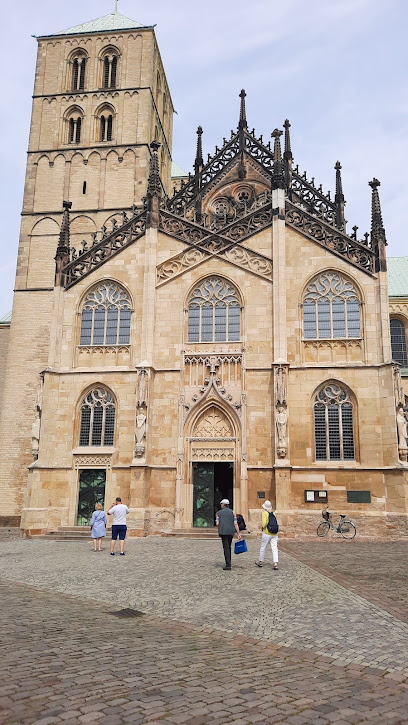
Domplatz Münster
Discover the timeless charm of Domplatz Münster, a historical market square adorned with stunning architecture and vibrant local culture, perfect for every traveler.
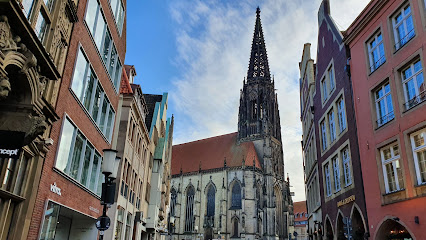
Botanical Garden of the Westphalian Wilhelm University of Münster
Explore the serene beauty of the Botanical Garden in Münster, a perfect blend of nature, education, and tranquility.
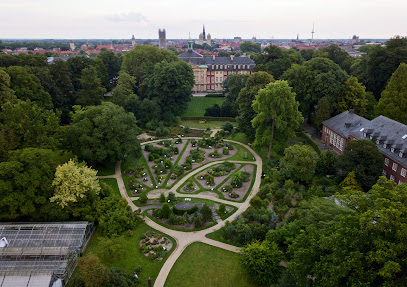
LWL Museum of Natural History with Planetarium
Discover the LWL Museum of Natural History and Planetarium in Münster, where nature and the universe come alive through engaging exhibits and immersive experiences.
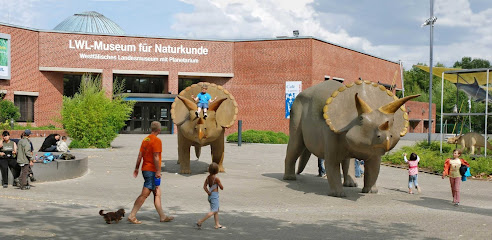
Schlossplatz
Discover the enchanting Schlossplatz in Münster, where history, nature, and culture beautifully intertwine in a picturesque setting.
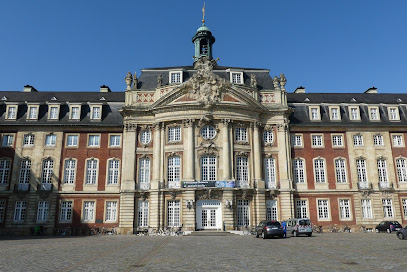
Westphalian State Museum of Art & Cultural History
Explore the artistic legacy of Münster at the Westphalian State Museum of Art & Cultural History, where local heritage meets global artistry.
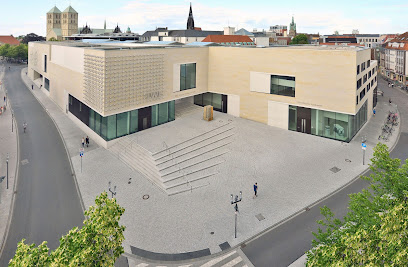
St.-Paulus-Dom
Explore the breathtaking St.-Paulus-Dom in Münster, a masterpiece of Gothic architecture boasting stunning stained glass and an extraordinary astronomical clock.
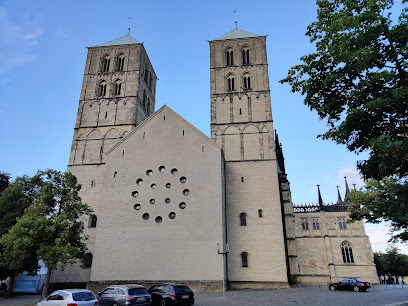
Prinzipalmarkt
Explore the historical heart of Münster at Prinzipalmarkt, where stunning architecture meets vibrant culture in a beautiful city square.
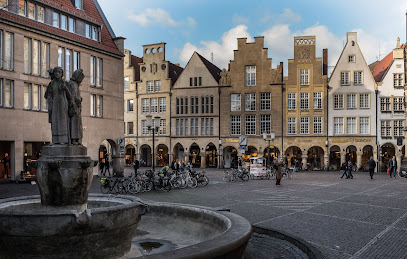
Stadthafen
Explore the vibrant waterfront of Stadthafen in Münster, a hub of culture, cuisine, and scenic beauty perfect for every traveler.
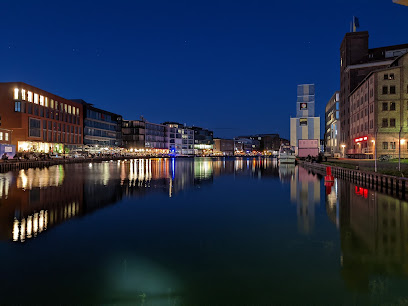
St. Lamberti
Experience the architectural beauty and rich heritage of St. Lamberti, a must-visit Catholic church in the heart of Münster, Germany.
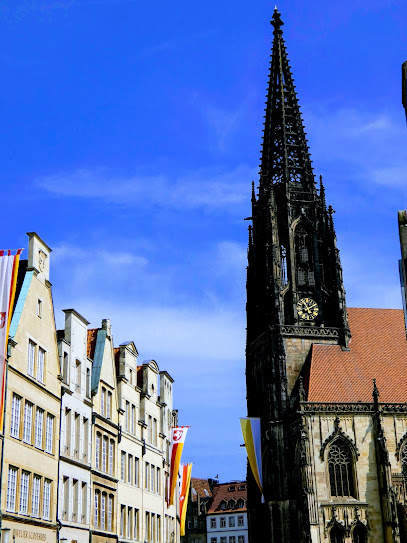
Vogelschutzgebiet 'Rieselfelder Münster'
Discover the serene beauty and diverse wildlife at Rieselfelder Münster, a nature preserve perfect for birdwatching and peaceful strolls.
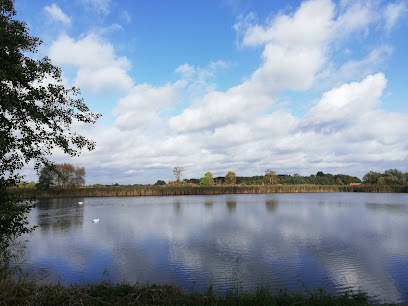
Stadtmuseum Münster
Explore the fascinating history and culture of Münster at Stadtmuseum Münster, where engaging exhibits bring the past to life.
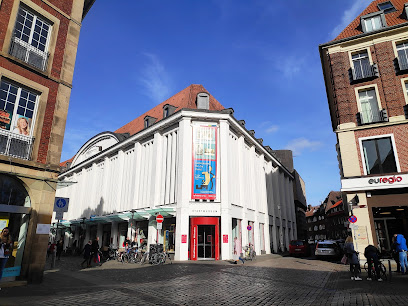
Schloss Münster
Discover the enchanting Schloss Münster, a historical castle and university, surrounded by beautiful gardens in the heart of Münster, Germany.
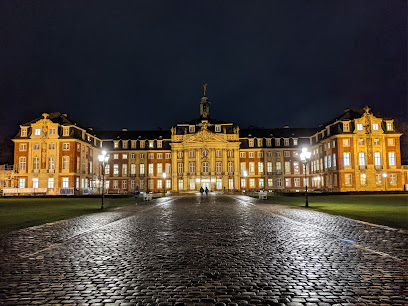
Art Museum Pablo Picasso
Explore the Art Museum Pablo Picasso in Münster, where timeless masterpieces meet modern creativity in a stunning architectural setting.
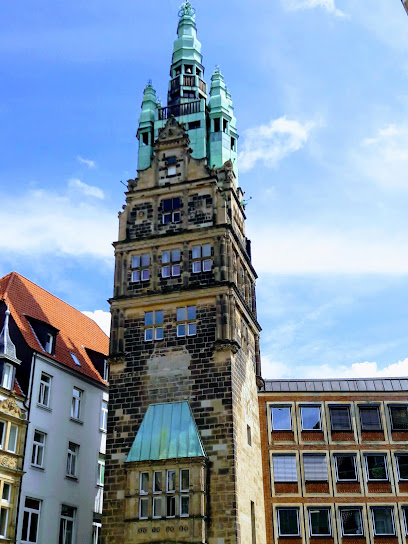
Ludgerikreisel Münster
Experience the fusion of art and urban life at Ludgerikreisel in Münster, where creativity meets the cityscape in an unforgettable way.
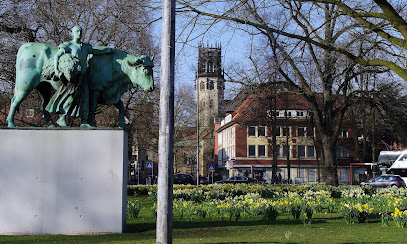
Unmissable attractions to see
Allwetterzoo Münster
Discover the enchanting world of Allwetterzoo Münster, where wildlife meets amusement in a beautiful park setting, perfect for family fun.
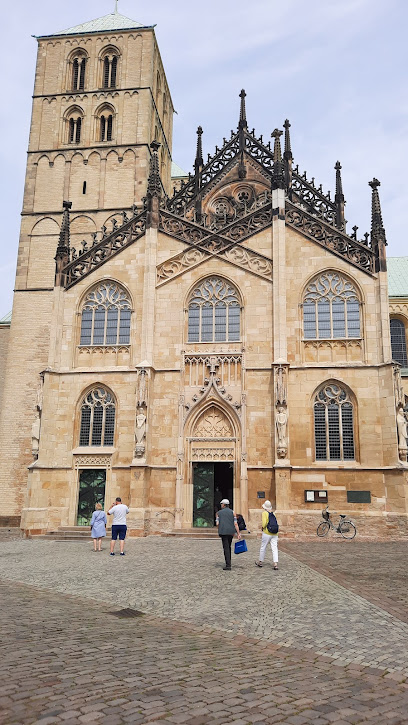
Schloss Nordkirchen
Experience the grandeur of Schloss Nordkirchen, the 'Versailles of Westphalia', where history and beauty converge in stunning gardens and Baroque architecture.
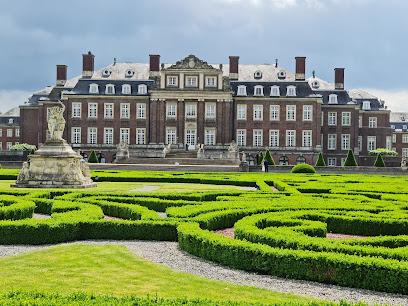
Seepark Lünen
Discover the serene beauty of Seepark Lünen, a perfect blend of nature and recreation in the heart of Lünen, Germany.
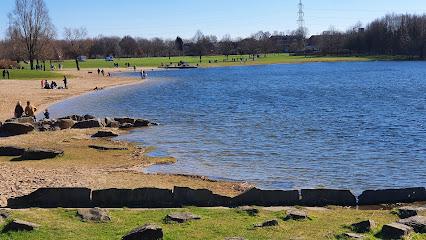
LWL Museum of Natural History with Planetarium
Discover the natural world and the cosmos at the LWL Museum of Natural History in Münster, where learning meets wonder in an interactive environment.
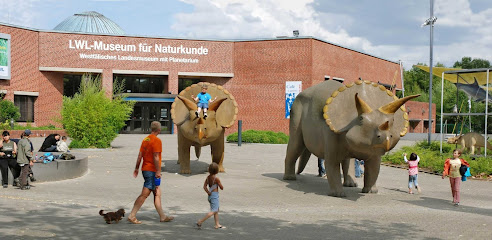
Schlossplatz
Discover the enchanting Schlossplatz in Münster, where history, nature, and vibrant culture converge in a stunning urban park setting.
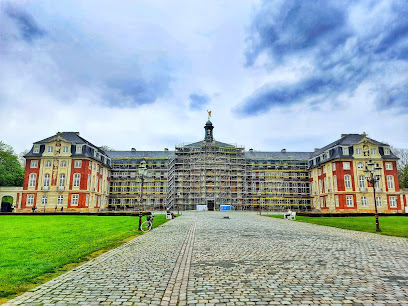
St.-Paulus-Dom
Discover the breathtaking St.-Paulus-Dom in Münster, a Gothic cathedral rich in history and architectural splendor, a must-see for every traveler.
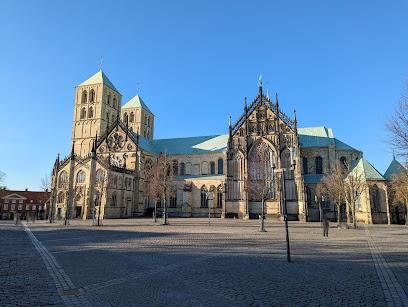
Westphalian State Museum of Art & Cultural History
Discover the artistic heritage of Münster at the Westphalian State Museum, showcasing centuries of cultural history and stunning exhibitions.
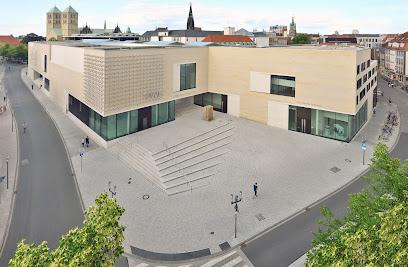
St. Lamberti
Explore the stunning Gothic architecture and rich history of St. Lamberti, a must-visit attraction in Münster, Germany.
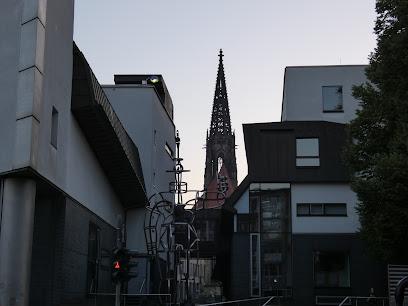
Stadthafen
Experience the vibrant charm of Stadthafen in Münster, where scenic beauty meets cultural flair, perfect for leisurely strolls and delightful dining.
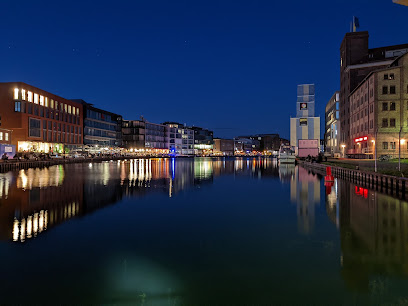
Art Museum Pablo Picasso
Explore the vibrant world of Pablo Picasso at the Art Museum in Münster, where creativity and culture come together in an inspiring setting.
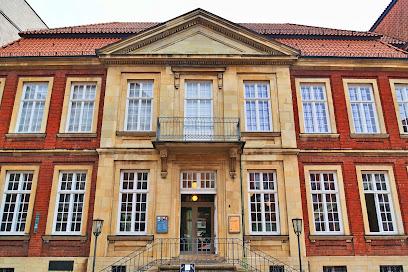
Westphalian Horse Museum Münster gGmbH
Explore the rich equestrian heritage at the Westphalian Horse Museum in Münster, where history and culture of horses come to life.
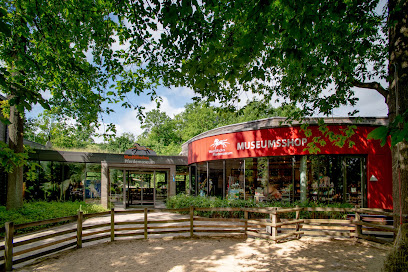
Dom St. Petrus
Discover the breathtaking beauty and rich history of Dom St. Petrus, a stunning Catholic cathedral in the heart of Osnabrück, Germany.
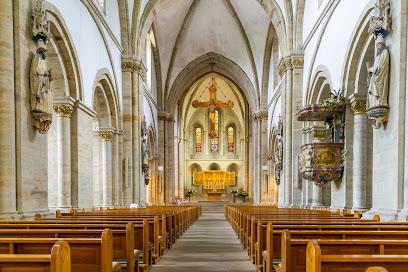
Schleuse Münster
Experience the engineering marvel of Schleuse Münster, a scenic lock in Germany that combines nature with fascinating waterway navigation.
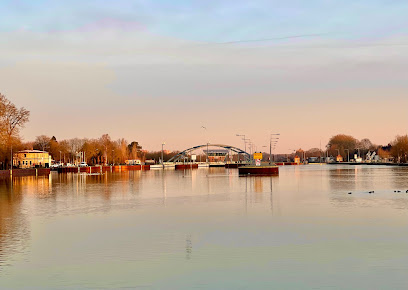
Antiquariat Michael Solder (Wilsberg)
Explore Antiquariat Michael Solder in Münster, a rare book store filled with literary treasures and a warm atmosphere for book lovers.
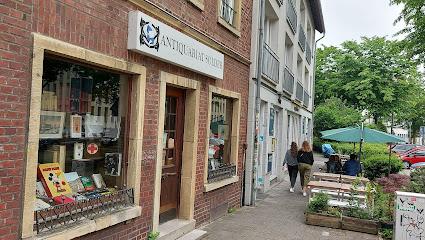
Ludgerikreisel Münster
Experience the artistic allure of Ludgerikreisel in Münster, a captivating landmark that celebrates culture, community, and creativity in a stunning urban setting.
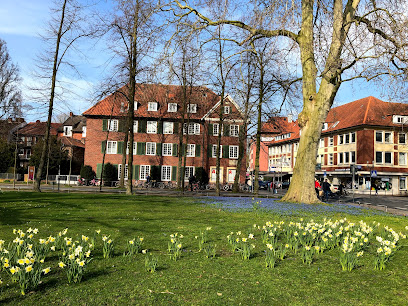
Essential places to dine
L'Osteria Münster
Discover authentic Italian cuisine at L'Osteria Münster with delicious pizzas and pastas served in a warm and inviting atmosphere.
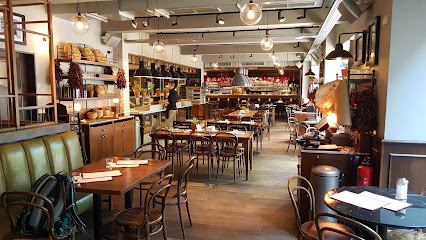
Altes Gasthaus Leve
Discover the essence of German cuisine at Altes Gasthaus Leve in Münster - where tradition meets flavor in every dish.
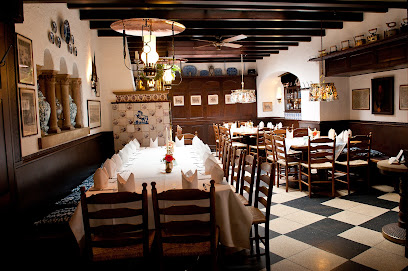
Großer Kiepenkerl Gasthaus
Discover authentic German flavors at Großer Kiepenkerl Gasthaus in Münster - a culinary gem blending tradition with local charm.
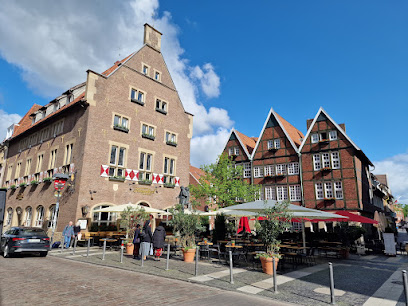
Kleiner Kiepenkerl
Discover authentic German cuisine at Kleiner Kiepenkerl in Münster - where tradition meets flavor in every bite.
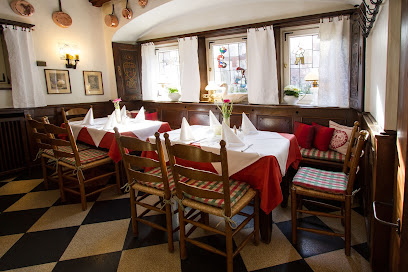
HOCHSTAPLER
Savor gourmet hamburgers at Hochstapler in Münster – where every bite is crafted with quality and passion.
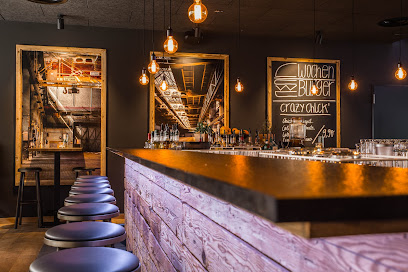
PierHouse
Experience delicious cuisine and refreshing cocktails at PierHouse in Münster's scenic waterfront setting.
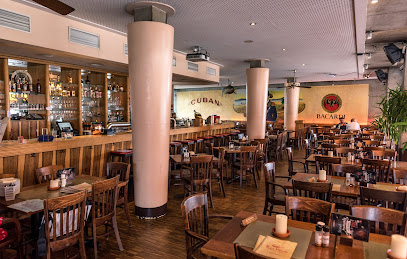
Gasthaus Stuhlmacher
Discover the heart of German cuisine at Gasthaus Stuhlmacher in Münster - where tradition meets flavor in a cozy atmosphere.
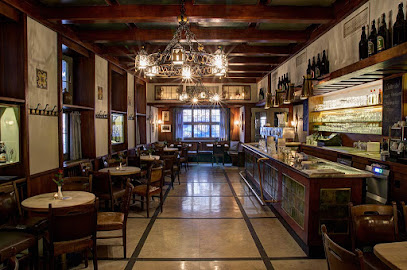
Gaststätte Pinkus Müller
Experience authentic Western cuisine at Gaststätte Pinkus Müller in Münster - where tradition meets flavor in a cozy setting.
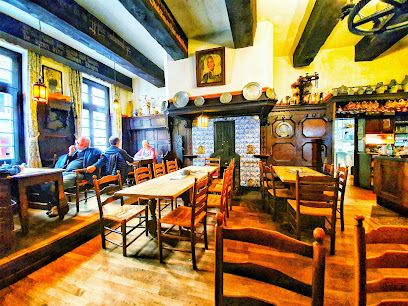
Krawummel - different dining
Savor delicious vegan Western cuisine at Krawummel in Münster – where flavor meets sustainability in every bite!
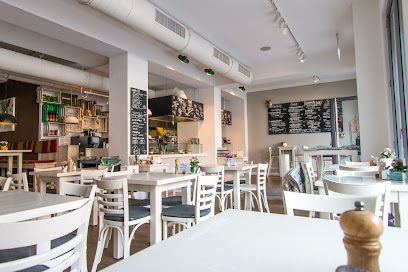
Namaste Indisches Restaurant
Experience authentic Indian cuisine at Namaste Indisches Restaurant in Münster - where tradition meets taste.
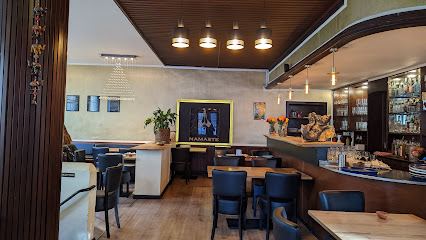
Gaststätte Töddenhoek
Discover authentic German flavors at Gaststätte Töddenhoek in Münster – where tradition meets taste in every dish.
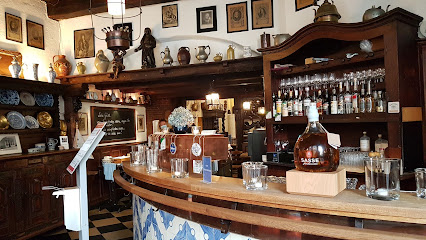
Aposto Münster
Experience authentic Italian flavors at Aposto Münster – where every dish tells a story of tradition and passion.
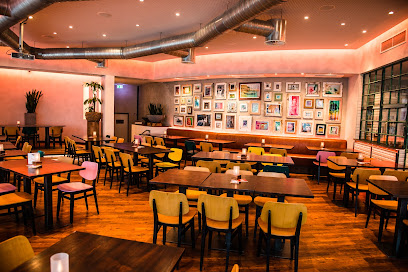
Les Cèdres
Experience authentic Lebanese flavors at Les Cèdres in Münster - where every dish is a journey into Middle Eastern culinary tradition.
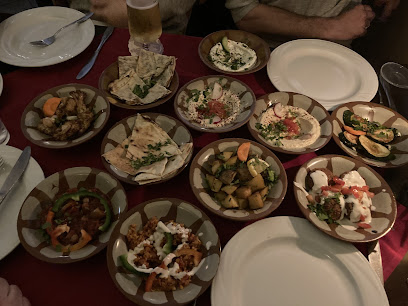
Köpi Stuben | Gaststätte • Restaurant • Biergarten
Discover Köpi Stuben: A cozy gastropub in Münster serving authentic German cuisine and craft beers in a charming atmosphere.
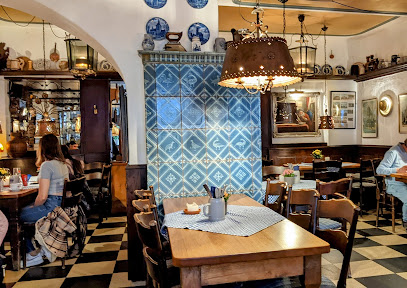
Chay Chay by royals & rice
Discover authentic Vietnamese cuisine at Chay Chay in Münster – where tradition meets modern dining.
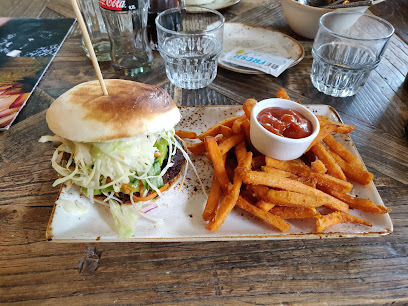
Markets, malls and hidden boutiques
Münster Arkaden
Experience the vibrant shopping scene at Münster Arkaden, where local charm meets global brands in a stunning setting.
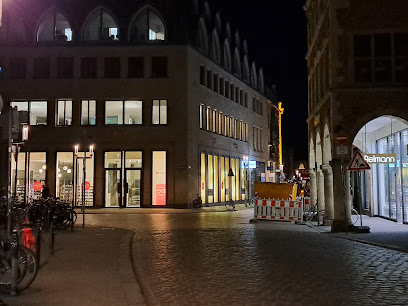
Primark
Discover the latest fashion trends at Primark in Münster, where style meets affordability in a vibrant shopping atmosphere.
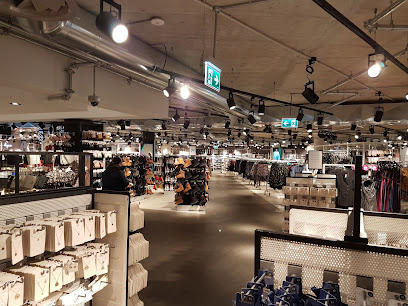
GALERIA Münster Ludgeristraße
Explore GALERIA Münster Ludgeristraße: Your Ultimate Shopping Destination in Münster with a Diverse Range of Products and Dining Options.
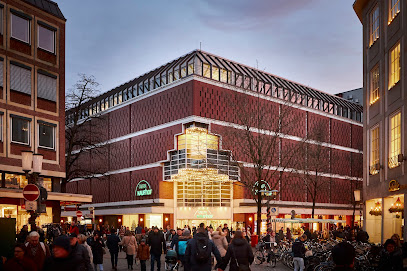
TK Maxx
Explore TK Maxx in Münster for unbeatable bargains on fashion and home goods, offering a unique shopping experience in the heart of the city.
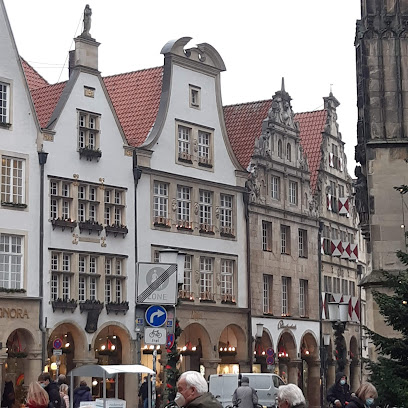
Königspassage
Discover the charm of Königspassage, Münster's premier shopping destination, featuring diverse stores and dining options in a vibrant atmosphere.
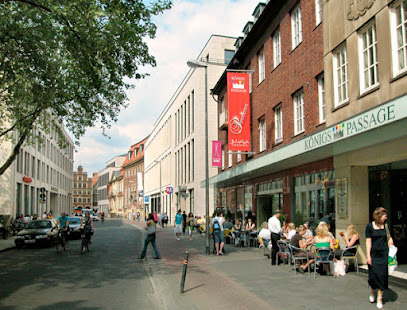
Zalando Outlet Store Münster
Explore the Zalando Outlet Store Münster for unbeatable fashion deals and a diverse selection of clothing, shoes, and accessories in a vibrant atmosphere.
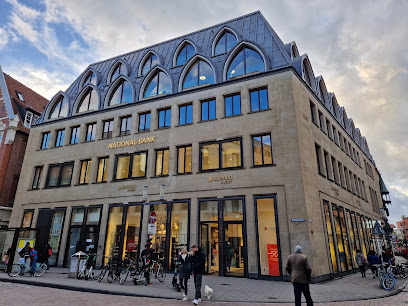
MuKK Kinderkaufhaus
Explore the magic of play at MuKK Kinderkaufhaus, Münster's premier toy store offering a vast selection of quality toys for children of all ages.
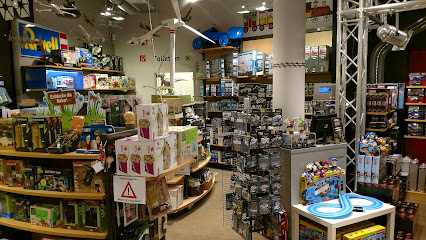
Unterwegs Münster Outlet Store & Kids
Discover top outdoor gear for your adventures at Unterwegs Münster Outlet Store, perfect for families and enthusiasts alike.
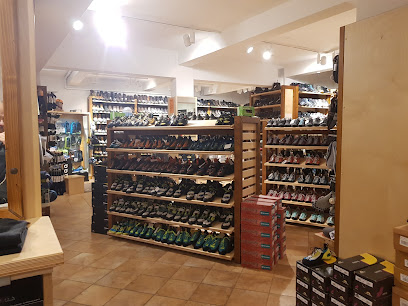
Creole-Schmuckwaren
Explore exquisite handcrafted jewelry and unique body piercings at Creole-Schmuckwaren, a hidden gem in Münster's vibrant shopping scene.
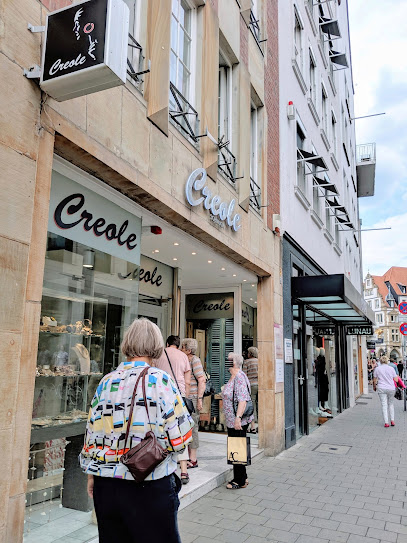
Elbenwald
Explore Elbenwald in Münster, a unique gift shop filled with pop culture treasures, toys, and clothing for fans of all ages.
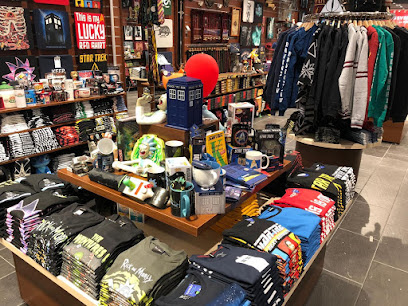
BUTLERS@home24 Münster Ludgeristraße
Explore BUTLERS@home24 in Münster for unique gifts, stylish home decor, and chic furniture, perfect for every décor enthusiast and souvenir seeker.
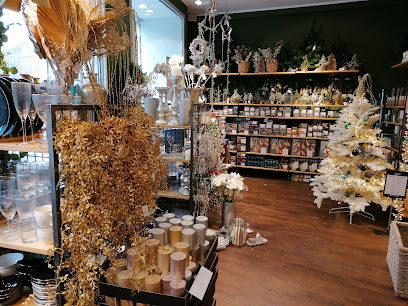
Manufactum Warenhaus
Explore sustainable craftsmanship at Manufactum Warenhaus in Münster, where quality gifts and home goods await every discerning traveler.
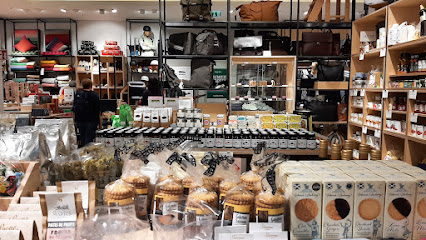
Villa Sophie Label Store Münster
Explore fashion at Villa Sophie in Münster, where trendy clothing meets timeless style in a charming shopping atmosphere.
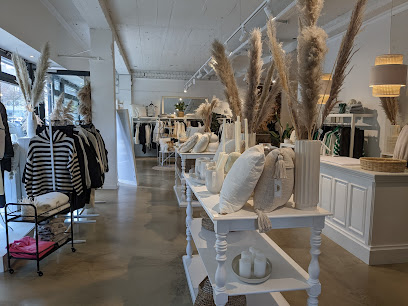
Kauf Dich Glücklich Münster
Discover unique fashion and delightful accessories at Kauf Dich Glücklich Münster, a must-visit clothing and shoe store for every style enthusiast.
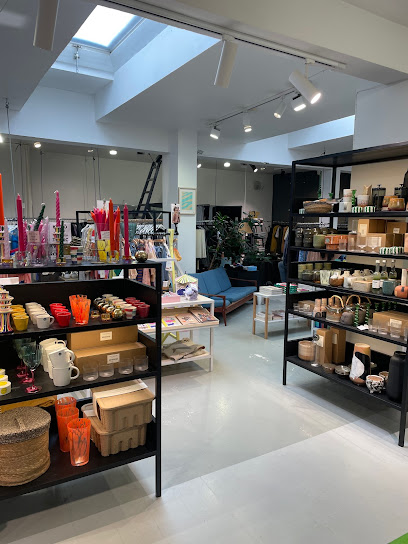
Søstrene Grene
Explore Søstrene Grene in Münster for a unique blend of home goods, art supplies, and creative inspirations in a charming shopping atmosphere.
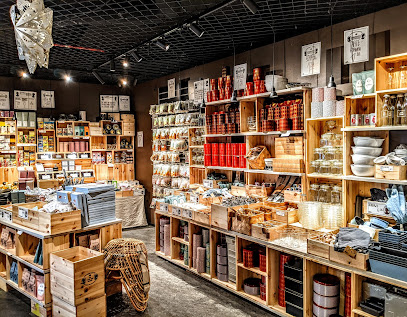
Essential bars & hidden hideouts
Whisky Dungeon
Explore a world of whiskies at Whisky Dungeon, Münster's premier bar for connoisseurs and curious newcomers alike.
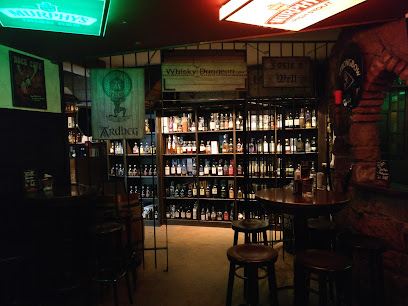
Destille
Experience the vibrant nightlife of Münster at Destille, where exceptional drinks and a lively atmosphere await you.
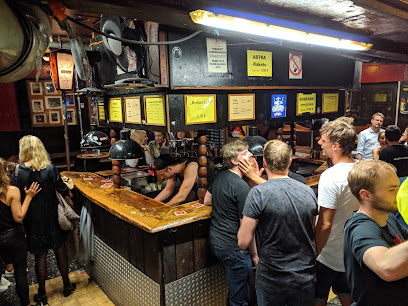
Davidwache
Experience the lively nightlife of Münster at Davidwache, where great drinks and vibrant atmosphere come together for an unforgettable evening.
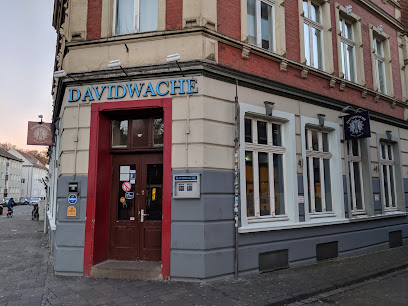
Barzillus - Münster
Experience the vibrant nightlife of Münster at Barzillus, a cozy pub with a rich selection of drinks and hearty snacks in a warm atmosphere.
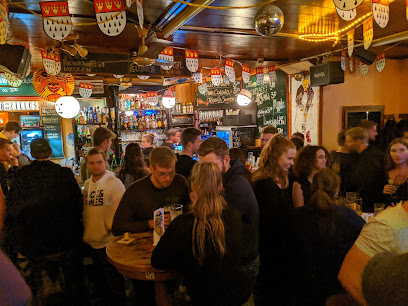
Eulen & Lerchen
Discover the vibrant cocktail scene at Eulen & Lerchen in Münster, where expertly crafted drinks meet a lively atmosphere and welcoming service.
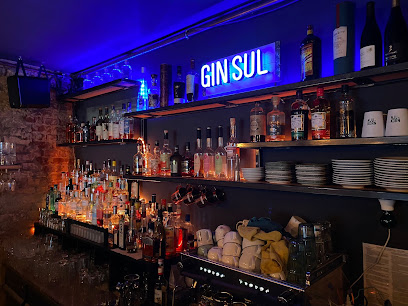
Haifischbar - Münster
Discover Haifischbar in Münster, a lively sports bar with a surf culture twist, offering a wide selection of beers and cocktails in a vibrant atmosphere.
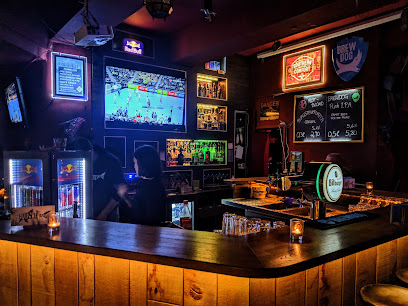
Gorilla Bar
Experience the lively atmosphere and vibrant live music at Gorilla Bar, a must-visit destination in Münster for drinks and entertainment.
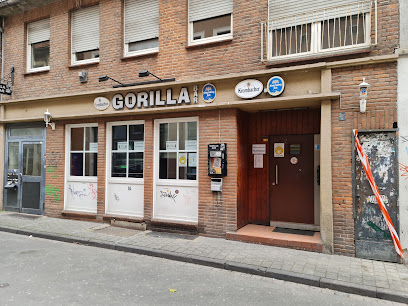
The James
Discover Münster's vibrant nightlife at The James, where exceptional guest beers and cocktails await in a stylish setting.
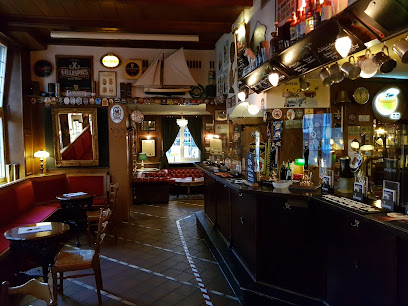
Bullenkopp
Discover Bullenkopp, a vibrant pub in Münster with a welcoming atmosphere, diverse drinks, and a glimpse into local nightlife.
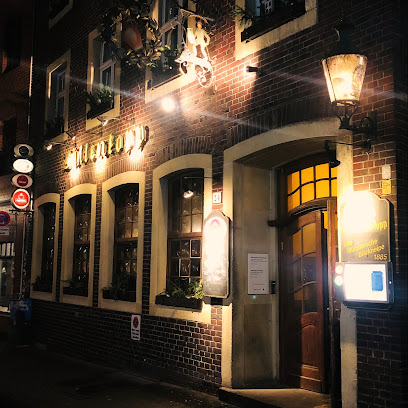
Mokel Bar
Experience the vibrant atmosphere of Mokel Bar in Münster, offering a blend of ambiance, delicious drinks, and local flavor for every tourist.
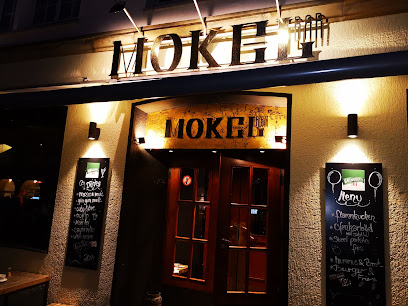
Watusi Bar
Discover Watusi Bar in Münster, where vibrant cocktails and live music create an unforgettable nightlife experience.
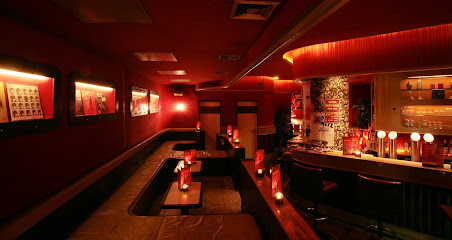
Dock Bar
Experience the vibrant nightlife of Münster at Dock Bar, where craft beers and cocktails meet a cozy gastropub atmosphere.
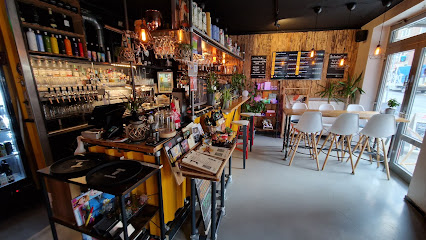
Das Piano
Experience the vibrant atmosphere of Das Piano, an Irish pub in Münster offering live music, great food, and a unique gastropub experience.
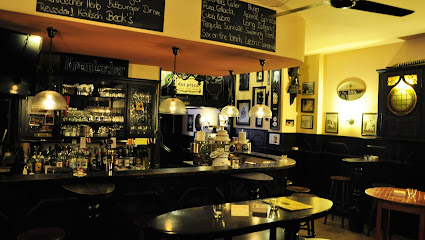
Heile Welt
Discover Heile Welt in Münster - a cozy bar offering a vibrant atmosphere, diverse drinks, and unforgettable nights in the heart of the city.
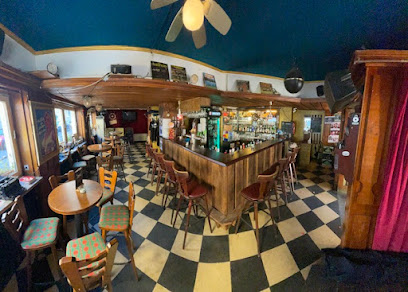
Local Phrases
-
- HelloHallo
[hah-loh] - GoodbyeAuf Wiedersehen
[owf vee-der-zay-en] - YesJa
[yah] - NoNein
[nine] - Please/You're welcomeBitte
[bih-tuh] - Thank youDanke
[dahn-kuh] - Excuse me/SorryEntschuldigung
[ent-shool-dee-gung] - How are you?Wie geht es Ihnen?
[vee gayt es een-en] - Fine. And you?Gut. Und Ihnen?
[goot oont een-en] - Do you speak English?Sprechen Sie Englisch?
[shpre-khen zee eng-leesh] - I don't understandIch verstehe nicht
[ikh fer-shtay-uh nikht]
- HelloHallo
-
- I'd like to see the menu, pleaseIch hätte gerne die Speisekarte, bitte
[ikh hah-teh gehr-neh dee shpigh-eh-kahr-teh, bih-tuh] - I don't eat meatIch esse kein Fleisch
[ikh ess-eh kine flysh] - Cheers!Prost!
[prohst] - I would like to pay, pleaseIch möchte bitte zahlen
[ikh mehrk-teh bih-tuh tsah-len]
- I'd like to see the menu, pleaseIch hätte gerne die Speisekarte, bitte
-
- Help!Hilfe!
[hil-feh] - Go away!Gehen Sie weg!
[geh-en zee vehg] - Call the Police!Rufen Sie die Polizei!
[roo-fen zee dee poh-lee-tsigh] - Call a doctor!Rufen Sie einen Arzt!
[roo-fen zee i-nen ahrtst] - I'm lostIch habe mich verirrt
[ikh hah-beh mikh feh-rirt] - I'm illIch bin krank
[ikh been krahngk]
- Help!Hilfe!
-
- I'd like to buy...Ich möchte kaufen...
[ikh mehrk-teh kow-fen] - I'm just lookingIch schaue nur
[ikh shou-eh noor] - How much is it?Wie viel kostet es?
[vee feel kohs-tet es] - That's too expensiveDas ist zu teuer
[dahs ist tsoo toy-er] - Can you lower the price?Können Sie den Preis senken?
[kuh-nen zee den prees zehn-ken]
- I'd like to buy...Ich möchte kaufen...
-
- What time is it?Wie spät ist es?
[vee shpeht ist es] - It's one o'clockEs ist ein Uhr
[es ist iyn oor] - Half past (10)Halb (zehn)
[halb (tsayn)] - MorningMorgen
[mohr-gn] - AfternoonNachmittag
[nahkh-mit-tahg] - EveningAbend
[ah-bent] - YesterdayGestern
[gehs-tehrn] - TodayHeute
[hoi-teh] - TomorrowMorgen
[mohr-gehn] - 1Eins
[iyns] - 2Zwei
[tsvai] - 3Drei
[dry] - 4Vier
[feer] - 5Fünf
[foonf] - 6Sechs
[zeks] - 7Sieben
[zee-ben] - 8Acht
[akht] - 9Neun
[noyn] - 10Zehn
[tsayn]
- What time is it?Wie spät ist es?
-
- Where's a/the...?Wo ist ein/der...?
[voh ist iyn/dehr] - What's the address?Was ist die Adresse?
[vahs ist dee ah-dreh-seh] - Can you show me (on the map)?Können Sie es mir zeigen (auf der Karte)?
[kuh-nen zee es meer tsi-gen (owf dehr kahr-teh)] - When's the next (bus)?Wann kommt der nächste (Bus)?
[vahn kohmt dehr nekh-steh (boos)] - A ticket (to ....)Eine Fahrkarte (nach ....)
[iyn-eh fahr-kahr-teh (nahkh ....)]
- Where's a/the...?Wo ist ein/der...?
History of Munster
-
Münster was founded as a monastery in 793 by Frisian missionary Saint Ludger. It quickly grew into a significant religious center. The city's name, derived from the Latin word 'monasterium,' reflects its ecclesiastical origins.
-
In the early 16th century, Münster became the site of a radical Anabaptist rebellion. Led by Jan Matthys and later Jan van Leiden, the city was transformed into a theocracy. The rebellion was brutally crushed in 1535, and the leaders were executed.
-
Münster played a crucial role in European history as one of the cities where the Peace of Westphalia was negotiated and signed in 1648. This treaty ended the Thirty Years' War and marked a turning point in the balance of power in Europe.
-
The 17th and 18th centuries saw Münster flourish under the influence of Baroque architecture and culture. The Prince-Bishopric commissioned many of the city's iconic buildings, including the Erbdrostenhof palace and the St. Paulus Cathedral.
-
During the Napoleonic Wars, Münster was annexed by France. After Napoleon's defeat, the city became part of the Kingdom of Prussia in 1815. This period saw significant modernization and development.
-
Münster suffered extensive damage during World War II due to Allied bombing raids. Post-war reconstruction focused on restoring many of the city's historic buildings and landmarks, preserving its rich cultural heritage.
-
Today, Münster is known for its vibrant cultural scene, prestigious universities, and as a center for cycling. The city's blend of historical architecture and modern amenities makes it a unique destination for visitors.
Munster Essentials
-
Munster is well-connected and can be easily reached by various means of transportation. The nearest major airport is Münster Osnabrück International Airport (FMO), located about 25 kilometers from the city center. From the airport, you can take a taxi, shuttle bus, or rent a car to reach Munster. Additionally, Munster has excellent train connections, with frequent services from major German cities like Berlin, Hamburg, and Cologne. The city's main railway station, Münster Hauptbahnhof, is centrally located and offers easy access to local and regional destinations.
-
Munster boasts an extensive public transportation network, including buses and trains. The city is also known for its bike-friendly infrastructure, with numerous bike lanes and rental services available. For short distances within the city, walking or biking is often the most convenient option. For longer trips, the local buses are efficient and well-connected. Taxis are also readily available, and ride-sharing services like Uber operate in the city. If you plan to explore the surrounding region, renting a car can be a practical choice.
-
The official currency in Germany is the Euro (EUR). Credit and debit cards are widely accepted in Munster, including in hotels, restaurants, and shops. However, it's advisable to carry some cash, especially when visiting smaller establishments or markets. ATMs are plentiful throughout the city, and most accept international cards. Contactless payment methods, such as Apple Pay and Google Pay, are also becoming increasingly popular.
-
Munster is generally a safe city for tourists. However, like any urban area, it's important to remain vigilant and take standard precautions. Avoid walking alone at night in poorly lit or unfamiliar areas. Areas around the main train station might be busier and require extra caution, especially late at night. Keep an eye on your belongings in crowded places to avoid pickpocketing. Overall, Munster has a low crime rate, but it's always best to stay aware of your surroundings.
-
In case of an emergency, dial 112 for immediate assistance, which is the European emergency number for police, fire, and medical services. Munster has well-equipped hospitals and clinics, including the University Hospital Münster (UKM), which offers comprehensive medical services. Pharmacies are widely available for minor health issues and over-the-counter medications. It's recommended to have travel insurance that covers medical emergencies.
-
Fashion: Do dress comfortably but neatly. Casual wear is fine, but avoid overly sloppy attire. Religion: Do respect religious customs, particularly in churches. Silence your phone and dress modestly. Public Transport: Do be punctual and respectful. Offer your seat to those in need. Don't talk loudly or play music. Greetings: Do greet people with a firm handshake and maintain eye contact. Don't be overly familiar with strangers. Eating & Drinking: Do try local specialties and enjoy the local beer. Don't leave a huge tip; rounding up the bill or leaving a small tip is customary.
-
To experience Munster like a local, rent a bike and explore the city's extensive cycling paths. Visit the weekly market at Domplatz for fresh produce and local goods. Spend some time at Lake Aasee, a popular spot for leisurely walks and picnics. Engage with locals at traditional beer gardens and try the local Westphalian cuisine. Don't miss visiting the Prinzipalmarkt, a historic street lined with beautiful gabled houses and shops. For a unique cultural experience, check out the Pablo Picasso Art Museum.
Trending Landmark in Munster
-
Allwetterzoo Münster
-
Domplatz Münster
-
Botanical Garden of the Westphalian Wilhelm University of Münster
-
LWL Museum of Natural History with Planetarium
-
Schlossplatz
-
Westphalian State Museum of Art & Cultural History
-
St.-Paulus-Dom
-
Prinzipalmarkt
-
Stadthafen
-
St. Lamberti
-
Vogelschutzgebiet 'Rieselfelder Münster'
-
Stadtmuseum Münster
-
Schloss Münster
-
Art Museum Pablo Picasso
-
Ludgerikreisel Münster
Nearby Cities to Munster
-
Things To Do in Essen
-
Things To Do in Dusseldorf
-
Things To Do in Arnhem
-
Things To Do in Nijmegen
-
Things To Do in Zwolle
-
Things To Do in Cologne
-
Things To Do in Bonn
-
Things To Do in Bremen
-
Things To Do in Hannover
-
Things To Do in Amersfoort
-
Things To Do in Groningen
-
Things To Do in Eindhoven
-
Things To Do in Aachen
-
Things To Do in Utrecht
-
Things To Do in Maastricht













